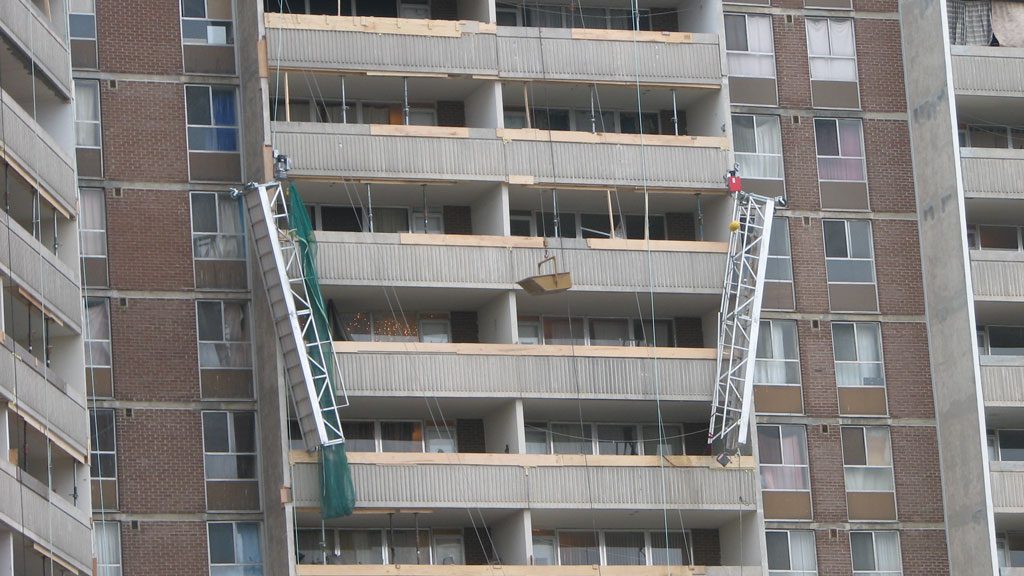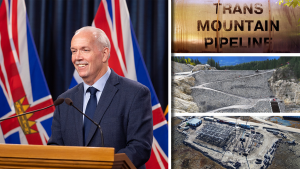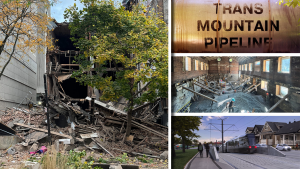Health and safety stakeholders are cautiously supporting the Ontario government’s decision to scrap mandatory inquests into construction deaths in favour of a new mandatory review process.
The current system has a backlog of over 100 cases with the gap between a death and the inquest ranging from two or three years to over a decade.
In the end, the experts observed, recommendations are submitted by a coroner’s jury of non-expert citizens and usually end up shelved.
“The current process is not working,” said Sean McFarling, general counsel with LIUNA, who frequently represents the union at appropriate inquests. “The delays arising from the jury inquest format are unacceptable. However, we want to ensure that the changes maintain a mandatory, and not discretionary, investigation into every construction fatality with input from the family of the deceased and industry stakeholders like LIUNA.”
The changes to the Coroners Act introduced by Attorney General Doug Downey and Solicitor General Michael Kerzner Nov. 30 call for a coroner-led annual review and public report of construction-related deaths each year. The reforms would allow the coroner to hold an inquest into a death if they believe it is in the public interest.
There will be a report published every June, said Kerzner in an interview.
“The purpose of the reviews will be to streamline and get answers sooner,” he said, noting similar deaths would be examined together. “When you get answers sooner you save lives, because you understand what happened with the trend.
“At the end of the day, if there’s one thing in mind, it’s to get answers for the family and to make the workplace safer.”
Delays in inquests stem in part from the government’s requirement that all legal proceedings related to construction mishaps be exhausted before an inquest is scheduled.
Construction labour lawyer Norm Keith of KPMG noted it took over 12 years for an inquest into the four swing-stage deaths of Christmas Eve 2009 to be held.
McFarling said LIUNA has been involved in a lengthy procedural process stemming from the 2014 death of LIUNA Local 1059 member Brian Daniel, who was struck and killed by a motorist while doing traffic control outside of London, Ont.
The inquest into Daniel’s death was held four years later; in 2020 an Infrastructure Health & Safety Association (IHSA) committee was struck with LIUNA participation to amend Occupational Health and Safety Act regulations; and committee work wrapped up in late 2023, with no legislation in sight, McFarling said.
Said McFarling, the timeline “is simply too long to effectively investigate a worker’s death and make recommendations and legislative changes to prevent further fatalities.”
Additionally, said Carmine Tiano, director of occupational services with the Ontario Building Trades, the inquest process relies on lay people who do not understand the dynamics of the industry serving on the jury.
“Most of the recommendations that come back really haven’t had any impactful, meaningful change,” said Tiano. “We still have 21 deaths a year since 1999.”
Keith noted there is no accountability attached to the recommendations.
“I’ve literally been told there’s a room at the Ministry of Labour where there’s a lot of dust collecting on a lot of coroner’s reports,” he said.
The stakeholders said it’s important there be full consultation by the government in developing the new review mechanism and that the review include a broad range of stakeholders and experts such as
engineers and health and safety professionals as well as workers advocates and the families of the victims.
To date, said IHSA president and CEO Enzo Garritano, the association received a high-level, “30,000 foot” overview of the review proposal from the coroner’s office where there were promises that labour and management stakeholders would be consulted along with subject-matter experts.
“We’re hoping that the timeliness of the new process, meaning much quicker in reviewing current issues…will result in better information and data to help prevention initiatives,” said Garritano.
“We’re hopeful that the process will yield better outcomes.”
Kerzner said there was significant consultation with stakeholders in formulating the reforms and the consultation will continue.
“What I can tell you is, we will reduce the duplication as we go forward and we draft regulations, and other components that are making this happen will be very inclusive to the stakeholders,” he said. “They’ll be part of that because the drafting of the regulations is important.”
Tiano said the new review could be an opportunity to incorporate more scientific inquiry into the deaths. He agreed with McFarling it was imperative that families have a place in the review, including funding for representation if needed.
“Obviously, the input from the families and from industry representatives and experts will be absolutely included,” said Kerzner.
The continued involvement of victims’ families is also important to the victims’ group Threads of Life, whose spokesperson, CK DesGrosseilliers, went through the inquest process in October 2020 after her brother Tim DesGrosseilliers, a unionized elevator constructor, died in a Toronto mishap in September 2017. The worker was crushed by an elevator motor that fell from above when strapping attached to a crane shredded.
The coroner’s jury in her brother’s case issued 16 recommendations, none of which were implemented, said DesGrosseilliers. She believes the government’s failure to move on the thousands of recommendations that have come from construction inquests is a failure of the system that should be rectified.
Rather than scrapping mandatory inquests, she said, the government should devote more resources to them. The process of holding an inquest into her brother’s death exposed nuances of the case that might be missed in a larger review, she said.
“Those recommendations, if they were enforceable across the board, could be saving more lives,” said DesGrosseilliers.
Kerzner commented, “One of the greatest things of what we’re trying to do is treat the families with respect.”
Keith noted every construction death has resulted in charges against employers, providing another opportunity for families to obtain closure.
Follow the author on Twitter .











Recent Comments
comments for this post are closed